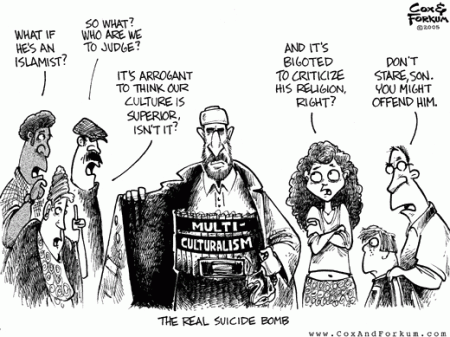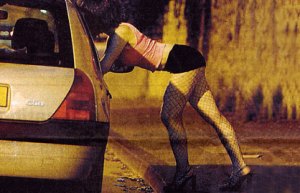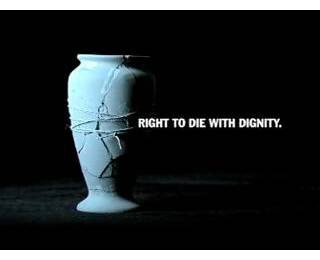My Humanities Lecture
Morals – Where do they come from!
I have always been interested in controversial topics; having said that, in this presentation, I would like to discuss morality and explore the different perspectives we have in this room.
As scientists, we ask difficult questions and try to find acceptable answers, such as:
1) Where do moral values come from?
2) What is right and wrong?
3) Are there absolute criteria for such values?
4) What roll does religion play?
5) What roll does society, as a whole, play?
6) What roll can science play in these judgments of values?
7) Is it all just relative, depending on the time and place we live in?
Today I would like to show that there may be objective ways to scrutinize the questions of morality and find potential answers, and at the end of the presentation, I will summarize my standing on the matter of science versus society versus religion, in terms of moral values, to facilitate a forum of debate and discussion on the subject matter.
When we observe nature, we see that all social animals have some form of moral codes ingrained into them. The more sophisticated the societal structure of these animals, the more complex the moral code of ethics observed in them and vice versa.
To give a few examples:
1) Ichneumonidae: is a diverse family of wasps, commonly known as digger wasps
The adult wasps are vegetarian, mostly living on nectar, but the larvae are carnivores. An adult female wasp will first hunt down a caterpillar or similar insect larva, then methodically sting and inject paralytic venom into every ganglion responsible for the motor functions of every segment of the victim’s body, rendering it motionless, but fully conscious and alive. Then it will lay an egg inside the body, so that when the baby wasp larva hatches, it has fresh meat to feed on. The larva is also quite clever, it eats through everything as it grows, except of the vital organs that keep the meat alive and fresh, until it’s time for it to pupate and eat its way out. I leave the moral implications of this creature’s life cycle to the audience!
2) Social insects: termites, bees, and ants
They will lay down their own lives to save their queen and nest, quite similar to how some of us humans would and have done the same for king and country. They also work in complex societies, and achieve great feats of coordination, such as nursing the young, foraging and farming for food, communicating locations and so on; all of which require some degree of moral or ethical code of conducts.
3) Primates: apes and monkeys
Chimpanzees, that cannot swim, have drowned in zoos trying to save others. Given the chance to get food by pulling a chain that would also deliver an electric shock to a companion, monkeys will starve themselves.
With these examples, I am simply trying to show the gradual trend towards human moral behavior from simple beginnings. Having given these well studied examples, I stand by the idea that morality, like everything else about life on earth, has evolved, and changed with time. The traits that we usually universally see as moral (honesty, fidelity, trustworthiness, compassion etc.) are literally embedded into our hardware through evolution; because it has utilitarian value, namely it helps to survive better in the long run.
Now, moving on to more human matters…
I’d like to start the next section by playing this video:
I think religion is not the source of our morals. In fact if religion were the basis of the moral structure of society, that society would be quite immoral indeed by today’s standards, like in the dark ages, or in some parts of the world that are still ruled by religious dogmas.
Exhaustive lists of the breaches in human rights (in terms of secular humanist thinking) that can be derived from just the Koran, Bible or Torah are too large for one small presentation; volumes of books can be written on the topic. I bring this up in the hope that it will provoke some critical thinking by the audience and provide another angle in the discussion to follow.
In my perspective, morality in general is twisted by religious faiths and inheriting moral values from religion will, without a doubt, give rise to truly immoral and appalling acts of cruelty and breach in human rights, as history and sadly even the present day situation with religious groups have shown us.
With time our societies have matured, and are gradually understanding the gravity of universal moral values and trying to formulate answers to questions that have impact on our day to day lives, for example:
1) Is killing animals for food and other necessities right or wrong and if it must be done, how can it be done in the most humane possible way?
2) Is abortion immoral, why or why not? If it is to be done, exactly when and how?
3) Is prostitution immoral, why or why not? What is prostitution?
4) Is cannibalism immoral, why or why not? What is cannibalism?
5) Is euthanasia immoral, why or why not?
There are N numbers of such questions we can ask within the domain of how we live today, which makes the study of morality ever so more important.
I think science has the means to answer at least some of these questions in an objective and reasonable fashion.
Let’s look at those examples from the light of science and see if we can formulate an acceptable answer.
1) We are omnivores; we are supposed to eat some meat from time to time, even though it is possible to live healthily without it, given our advances in medicine, using supplements. Granted that a lot of us eat meat, and a lot of us are concerned about animal rights, science can answer the question of what is the most humane and painless possible way to kill an animal.
2) Is abortion the deliberate killing of a human being? Science can answer the question of when a fetus can be considered as a human being. Science can also answer the question of when a fetus starts to feel pain and distress, before which time it feels nothing and can be aborted without causing any suffering.
Let’s now look at the other examples from a secular humanistic point of view.
3) What is prostitution? When we think about it, it’s much harder to define than not. If prostitution is simply accepting material or monetary rewards or assistance in exchange for sex, then old man John’s house wife is a prostitute.
4) What is cannibalism? Is it the ingestion of human tissue, or cells? Then fellatio, with a happy ending, is cannibalism.
I give these examples to illustrate that some aspects of human society are very difficult to define, let alone come up with concrete ethical answers.
5) Euthanasia is the deliberate ending of a human life! Who is entitled to make that judgment, especially when it comes to an innocent life? Mind you, courts make life and death judgments all the time in some countries. If such a judgment must be made, then science can answer when and how to conduct the procedure to make it as painless and comfortable as possible.
By no means is this presentation complete or exhaustive in its effort to illustrate the problem of dealing with the topic of morality. It deliberately leaves holes and open ended questions to assist discussion and heated debates, which I love so much, in the following hours.




















02/02/2011 at 11:15
I made morality. And everything else. Seriously. You need to stop doubting me, like, right now.
24/02/2011 at 01:29
Finally you speak to me! I’ve been waiting all my life!
24/11/2010 at 20:10
That is not going to be the most intellectual comment left on this blog, but… Where the hell can I get such a dress???? (I mean the white one)
26/11/2010 at 23:03
I have no idea, I don’t buy dresses any more 🙂 May be you should look in the supermarket 😛